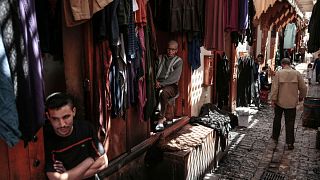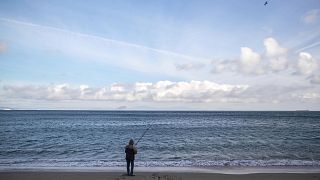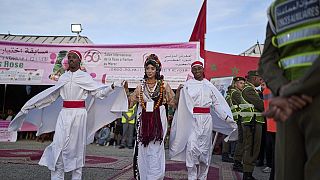Focus Africa
The Paris Summit on climate change, COP 21 was a breakthrough in the battle against global warming. But what will happen at COP 22 in Marrakesh?
During the 27th annual session of the Crans Montana Forum held in Austria’s capital, Vienna, Morocco’s Minister in charge of the Environment Hakima el Haité , explained the forum will advance the decisions of the Paris Agreement.
“We can hear it often, that climate change is a challenge for future generations, but that is a mistake. Climate change is a contemporary challenge, a challenge of this century. The consequences of this phenomenon have a direct effect on the day-to-day life of entire nations,” el Haité said.
As far as green energy is concerned, Morocco has been the go-to country.
For a long time, the north African nation has been dependent on imported fossil energy and the transition to renewables has been inscribed in Morocco’s Constitution since 2009.
According to the board member of Morocco’s solar energy agency Obaid Amrane, those have not been empty words.
“Morocco has a strong ambition to develop renewable energy production. By the year 2030 we would like to achieve that renewables represent 52 percent of the total energy mix.”
At the heart of the Moroccan green revolution is the NOOR project, a group of five solar power plants totaling approximately 2 giga watts of capacity. The first phase, NOOR 1 was inaugurated in February 2016.
The power plant also overcomes one of the main difficulties of using solar energy: it stores heat in molten salt, thus it can produce electricity even 3 hours after sundown. NOOR III will lengthen this period to 7 hours after sundown.
Although enormous renewable energy facilities are not enough, Morocco is equally ambitious when it comes to wind and hydro power plants.
“It is a considerable effort from a southern country that barely emits any greenhouse gases, but in addition to that, our policy on energy efficiency set a goal of 20 percent (improvement) in energy efficiency for 2030. In industry, transport, construction, public works, agriculture – all of these sectors are concerned. In addition, to remain coherent, we are reducing dependence on fossil fuels. It can only be done in small steps because of social reasons, but it is being done,” says Said Mouline, Director General of the National Agency for the Development of Renewable Energy and Energy Efficiency.
“We simply want to switch, to switch the mode of operation. To switch from negotiation to execution and action. To switch from rumination to construction, to switch from ‘debating mode’ to creating mode,” Morocco’s Minister in charge of Environment Hakima el Haité adds.
Hopefully Morocco’s example will inspire other countries at the COP 22 to turn the somewhat abstract success of the Paris treaty into concrete action.













02:30
Morocco’s oases struggle to survive amid growing desertification
02:38
Natural harmony of Uganda's 'Ghost Island' under threat from international tourism
02:05
In Zimbabwe, metal scrap collecting is reducing environmental pollution
01:52
In Goma, solar power brings light and hope in Ndosho neighbourhood
02:22
Cameroonian marine conservationists trained as scientific divers
01:15
Morocco says 2024 was the hottest year with temperatures reaching 47.7 degrees